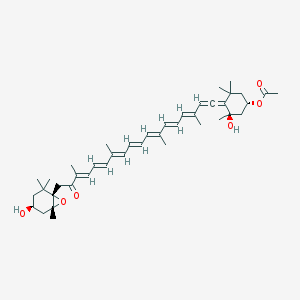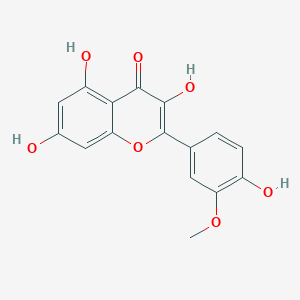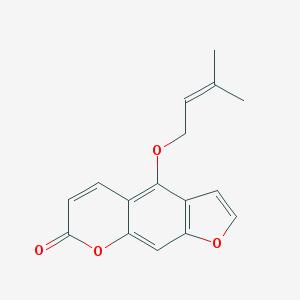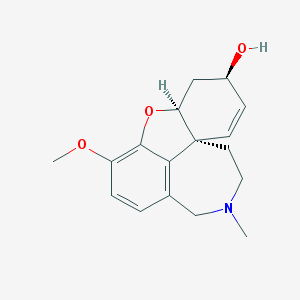Description
Fucoxanthin is a carotenoid found in brown seaweeds such wakame, hijiki, and kombu. It has been examined for potential health advantages such as weight loss, inflammation, and oxidative stress.
Fucoxanthin is well-known for stimulating the production of uncoupling protein 1 (UCP1) in white adipose tissue, which can boost fat metabolism and result in weight loss. It has also been discovered to have anti-inflammatory properties, which may assist to lower the risk of chronic diseases like as cardiovascular disease, diabetes, and cancer.
Fucoxanthin has also been researched for its potential antioxidant effects. It has been discovered to scavenge free radicals, which have been linked to oxidative stress and disease.
Here’s an overview of its main benefits and applications:
Main Benefits of Fucoxanthin
- Weight Management: Fucoxanthin has been observed to potentially aid in weight loss. Studies suggest it may help in reducing adipose tissue weight and may have anti-obesity effects.
- Antioxidant Properties: Like other carotenoids, fucoxanthin has strong antioxidant properties. It helps in neutralizing free radicals, thereby protecting cells from oxidative damage.
- Cardiovascular Health: It may contribute to cardiovascular health by helping in the reduction of cholesterol levels and improving blood lipid profiles.
- Anti-inflammatory Effects: Fucoxanthin shows potential in reducing inflammation, which is beneficial in managing chronic conditions like arthritis.
- Anti-cancer Potential: Preliminary research suggests that fucoxanthin may have anti-cancer properties, possibly inhibiting the growth of certain types of cancer cells.
Applications of Fucoxanthin
- Dietary Supplements: Fucoxanthin is often included in dietary supplements, especially those targeted towards weight management and general wellness.
- Functional Foods: It is sometimes added to functional foods to enhance their nutritional profile and provide antioxidant benefits.
- Cosmetics and Skincare: Due to its antioxidant properties, fucoxanthin is used in some cosmetic and skincare products.
- Research and Therapeutics: Ongoing research is exploring the potential of fucoxanthin in therapeutic applications, particularly in areas related to metabolic health and cancer treatment.





